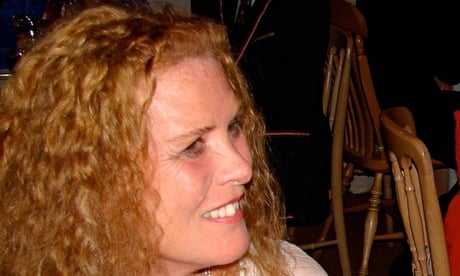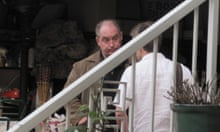A coroner has criticised mental health services for failing to provide proper care to a concert violinist who died a week after giving evidence against her predatory former choirmaster.
Richard Travers demanded that new rules be put in place to ensure vulnerable witnesses are given better support when they face traumatic trials.
Frances Andrade was "extremely traumatised" after testifying about her sexual abuse as a teenager by a former Chetham's School of Music choirmaster, Michael Brewer, and his then wife, Kay.
Andrade, a mother of four, took a fatal overdose at her home in Guildford, Surrey, days later on 24 January 2013. Her abuser was jailed for six years on five charges of indecent assault two months later.
Delivering his verdict at Woking coroner's court on Friday, Travers ruled out a verdict of suicide and said he could not be sure Andrade had intended to kill herself. But he said he would be writing three reports, two to the director of public prosecutions and one to the local health service, to call for changes in the wake of the inquest.
Brewer preyed on the young violin virtuoso at the prestigious Manchester school, forcing her to perform sex acts on him in his office and camper van.
His ex-wife, Kay, later joined in the abuse and was jailed for 21 months for one count of indecent assault.
Andrade, 48, had confided in her husband, Levine, 59, but chose not to tell police. In 2011 she told a friend, who later contacted officers.
As police investigated the case, she became increasingly down, withdrawn and depressed and repeatedly took overdoses, the inquest heard.
But despite this, failures by health professionals meant she was accidentally "amber-zoned" in records kept by a mental health team, whereas she had been assessed as the top "red" priority.
As 2012 drew to a close and her abuser's trial approached, her mental health deteriorated, she "changed significantly" and her overdoses became more frequent.
Travers said Andrade had told doctors "the overdoses had been triggered by anxiety that came from the court case.
"Her reason to overdose was not to kill herself but was a way to cope with the court case."
The coroner hit out at the support received by Andrade. Health professionals repeatedly failed to appreciate the risk she posed to herself, he said.
He said: "I can't help but think there was a real failure to appreciate the urgency of the situation and a failure to act upon it in an appropriate manner.
"What is clear is she found giving evidence extremely traumatic."
She had to endure a tense cross-examination by defence lawyers during her abuser's court case in January last year.
And during the trial, on 23 January, the judge in Brewer's case ordered the jury to deliver a number of not-guilty verdicts because of principles of law.
At 8am the next day Levine Andrade found his wife, known as Fran, dead at their home.
He earlier told the inquest she had sunk into "incredible despair" and "felt the defence barrister seemed to be attacking her personally".
The coroner said the failure to explain to the violinist why the not-guilty verdicts had been ordered was wrong.
He said: "Such matters, if left unexplained, could have a devastating effect on a complainant, who might well take it to be a reflection of the evidence that they have given."
Adam Pemberton, assistant chief executive at Victim Support, called for an urgent inquiry into how the criminal justice system treats victims of crime who have mental health issues.
He said: "It is appalling that Frances Andrade did not get the help she needed to cope with the trauma of the sexual abuse she suffered as a teenager.
"It's critical that vulnerable victims and witnesses get the right support and information about the progress of their cases. Without this we fear more cases will end in tragedy.
"We believe there is an urgent need for an inquiry into how the criminal justice system treats victims of crime who have mental health issues, matching recent efforts to help the people who commit those crimes who have mental health needs."








